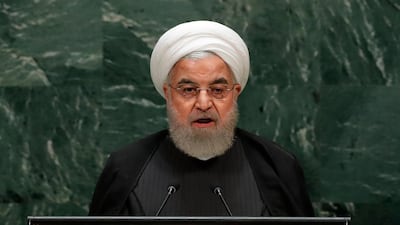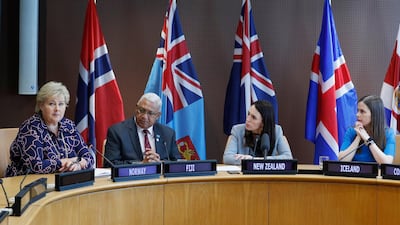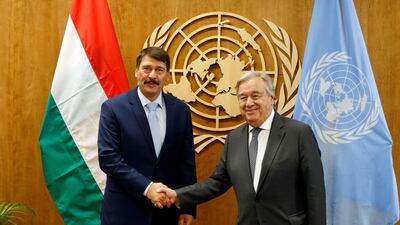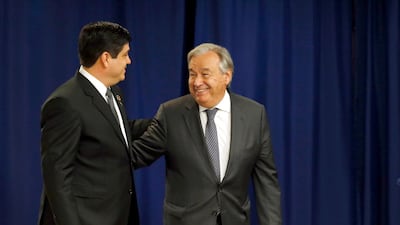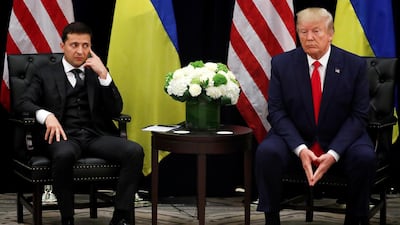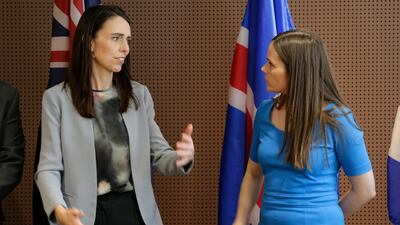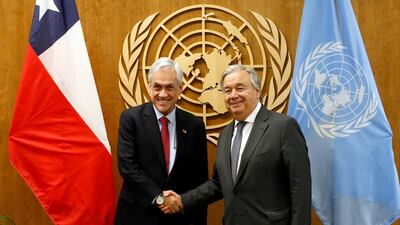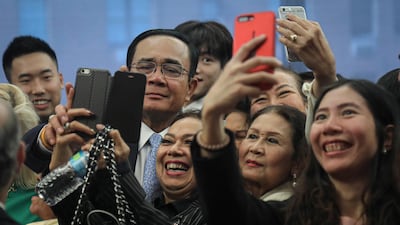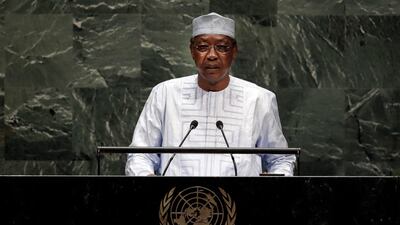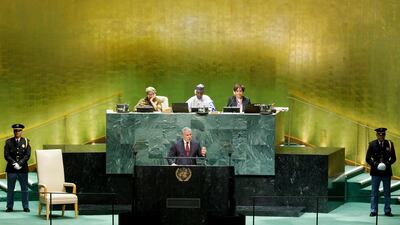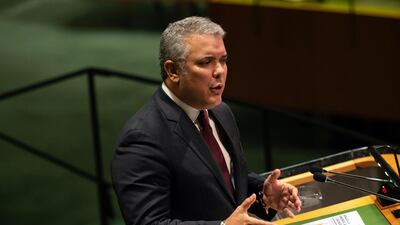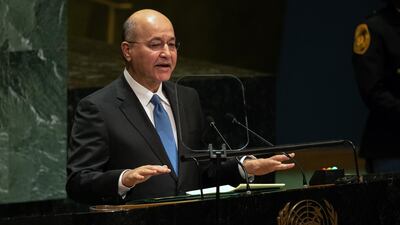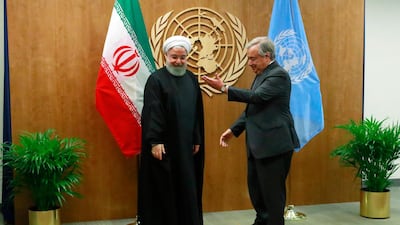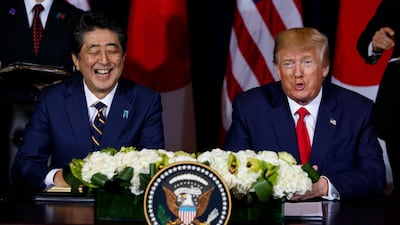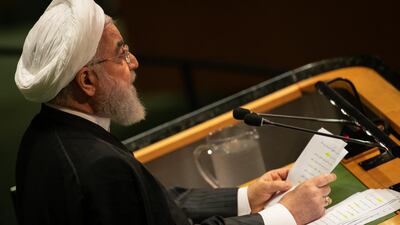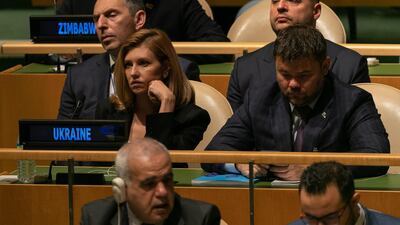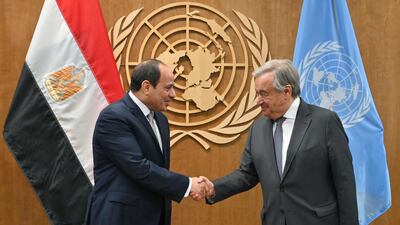Iranian President Hassan Rouhani on Wednesday ruled out meeting US leader Donald Trump, saying talks could not take place while American sanctions were in place.
Hours earlier, US Secretary of State Mike Pompeo unveiled new economic measures against Chinese entities involved in buying Iranian oil, blunting a European effort to reduce tension.
Mr Rouhani used his annual address to the UN General Assembly to end speculation that a compromise with the US was imminent, dismissing Mr Trump's overtures as premature and no more than a photo opportunity.
“I would like to announce that our response to any negotiation under sanctions is negative,” he said. “Memento photos are the final stage of negotiations, not the first one.”
Iran said the US offer was insincere because members of the Trump administration had boasted about how a “maximum pressure” campaign had caused economic hardship after the US decision last year to withdraw from the 2015 Iran nuclear deal.
“How can someone believe them when the silent killing of a great nation, and pressure on the lives of 83 million Iranians, especially women and children, are welcomed by US government officials?” Mr Rouhani asked.
The stalemate threatens to deepen a security crisis in the Gulf after the September 14 attacks on Saudi Aramco oil facilities, which the US and European and Gulf countries said were carried out by Tehran.
The new US sanctions and Mr Rouhani's remarks on Wednesday left a diplomatic effort led by French President Emmanuel Macron in jeopardy.
Mr Macron has sought to ease the situation between Iran and the US, holding talks with both presidents at the UN in the hope that they would agree to meet.
Mr Trump on Tuesday said talks were possible if the Iranian regime ended its aggression in the Middle East, but ruled out any immediate easing of sanctions.
The announcement by Mr Pompeo at an event on the sidelines of the General Assembly only widened the gap between Tehran and Washington.
Mr Rouhani, in a fiery 22-minute speech, said the US had to first return to the nuclear deal, blaming “the attitude of the incumbent US government” for the crisis but saying European powers in the deal had also fallen short.
“It has now become clear for all that the US turns its back on commitments,” he said. “And Europe has been unable to fulfil its commitments."
______________
UNGA day 3 - in pictures
______________
Before Mr Rouhani's address, the EU's foreign policy chief Federica Mogherini met Iranian Foreign Minister Javad Zarif, and those of Britain, China, France, Germany and Russia, the other parties to the nuclear deal.
The agreement “remains a key element of the global nuclear non-proliferation architecture and a significant achievement of multilateral diplomacy”, Ms Mogherini said.
She said it was in Iran's interests to return to full compliance.
Iran has taken two measures to reduce its commitments in the deal and has threatened a third such step early next month.
“I believe that we all welcome the efforts that have been made to open channels of dialogue,” Ms Mogherini said of Mr Macron's initiative.
Mr Zarif said “it was a good meeting”, but did not elaborate.
However, deep scepticism remains over any chances of a breakthrough after the attacks on Saudi Aramco sites.
Mr Pompeo said the US would punish Chinese companies and their chief executives for buying Iranian oil.
The Trump administration announced in May that it would force all countries to stop buying Iran's crude, its major export, sending tension soaring.
“We're telling China, and all nations, know that we will sanction every violation of sanctions of all activity,” Mr Pompeo said at an event hosted by United Against a Nuclear Iran, a group opposed to Tehran's regime.
Meanwhile, Adel Al Jubeir, the Saudi Minister of State for Foreign Affairs, said his country would continue to consult with its allies and partners on what action to take against Iran over the Aramco attacks.
“We will be very deliberate and thorough,” Mr Al Jubeir said.
He said an international investigation was under way but repeated that Tehran was to blame for the strikes.
“We will come up with options and we will consider the options. How we will deal with it is something we will reveal in due course.”
